London Film Festival 2019, Days 6-7: Under The Radar Gems & Disappointments
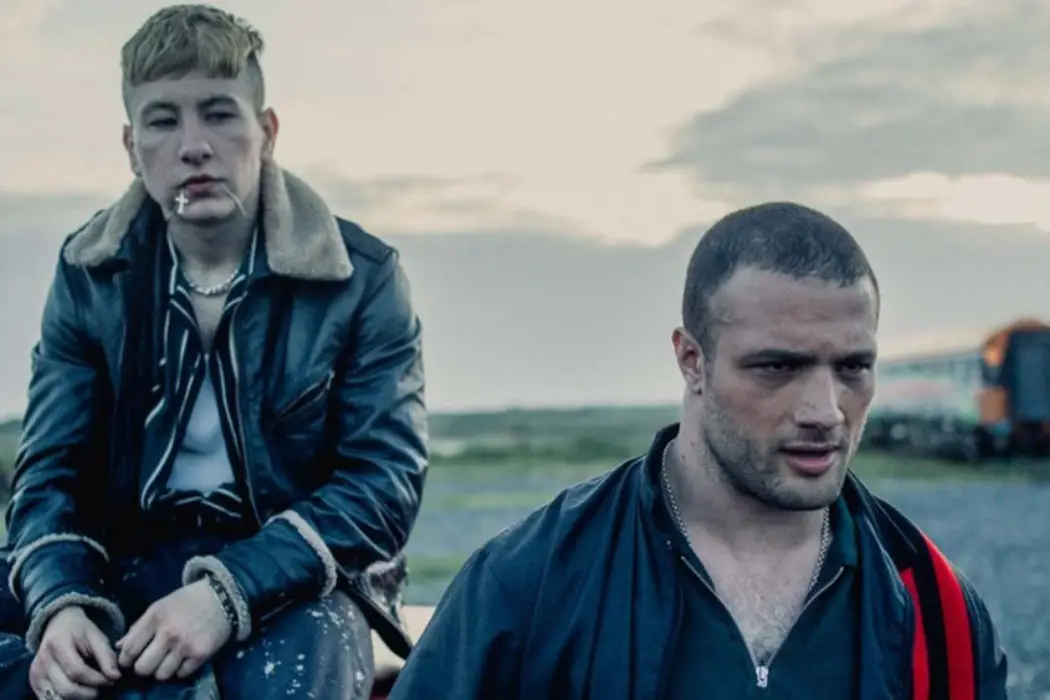
Alistair is a 25 year old writer based in Cambridge.…
We’re back with another dispatch from this year’s London Film Festival. Some of the biggest premieres are now taking place, such as Rian Johnson‘s Knives Out and James Mangold‘s Ford Vs Ferr… sorry, Le Mans 66, as it’s titled on this side of the Atlantic. But as always, why would we watch the big movies that will be out before the year’s end, when we could discover some gems elsewhere in the lineup? Here’s what we caught on days six and seven.
Babyteeth (Shannon Murphy)
Nathan Osborne: In her directorial debut, Shannon Murphy demonstrates a remarkable ability to balance the various tones of Babyteeth, while also circumventing sentimentality in favour of something far more emotionally enriching and rewarding.

Babyteeth’s depressing subject matter – a teenage girl’s cancer diagnosis – is counteracted with a sweet yet troubled romance and an admirable helping of humour that surprises in its consistency. Rita Kalnejais’ emotionally-arresting screenplay is so impressively balanced, and what it lacks in refinement (if it trips up anywhere, it needs tightening to reduce the somewhat repetitive narrative points borne out of the chapter-like structure), it easily atones for in poignancy – all of which is enhanced by the self-assurance in Murphy’s vision.
Eliza Scanlen breathes further complexity into her character and certifies the merit of her meteoric rise to public attention following a career-making role in HBO’s Sharp Objects. She’s funny, sensitive, fragile and inspiring, in a beyond-her-years turn that showcases her range phenomenally. Toby Wallace is a major surprise too, handling an arc that could’ve derailed in less thoughtful hands. Essie Davis and Ben Mendelsohn, especially in that final scene, create such an impressive chemistry too that earns your tears.
Better than a trip to the dentist, but probably as many tears, Babyteeth may just be one of the strongest debuts in years.
Calm with Horses (Nick Rowland)

Paddy Wilson: In another addition to the rich cinematic universe of films with a pleasant sounding title but grim subject matter is Calm With Horses, a bruising Irish drama and feature debut for director Nick Rowland. The film follows ex-boxer Arm (Cosmo Jarvis), a hulking yet sweet man taken in and used as a weapon by the Devers crime family after his retirement, chaperoned most closely by Barry Keoghan‘s coercive bully Dymphna.
It’s a film about violence, set in a violent west Ireland world, and the already tough going gets tougher after Arm is ‘asked’ by the Devers to kill a man who molested the youngest Dever daughter, all the while trying to be a good father to his autistic son, Jack (Jilkan Moroney), and improve his relationship with Jack’s mother, Ursula (Niamh Algar). Needless to say, things do not go according to plan and a tightly paced drama ensues.
Barry Keoghan, building on his appearance in Dunkirk and fantastic turn in 2017’s Killing of a Sacred Deer, cements his place as one of the best young actors around as an aggressive but ultimately pitiful thug. Keoghan is the Christian Bale to Jarvis‘ Mark Wahlberg from 2010’s The Fighter, with Jarvis’ quiet performance the heart of the story and arguably the better of the two. Arm is not an articulate or intelligent man but Jarvis‘ performance, even in the more cliched moments such as a final cathartic call with Ursula, feels so authentic that ‘realistic’ doesn’t seem to go far enough: it simply feels real. The film is a three-act structure, relatively conventional character arc stuff and ‘realistic’ through its grittiness at the macro level – but it also feels ‘real’ at the micro level, showing how people, even in their most desperate moments, hedge and fudge and do not simply unload their feelings when is narratively convenient. That restraint, in the script’s dialogue and Jarvis‘ performance is the film’s most compelling element.
But it’s not all bleak. Whenever the Dever family are on screen there’s a constant sense of dread but the scenes between Arm and Ursula in particular are sweet, with the couple generating warmth and affection for one another within their complicated relationship. There’s also a slightly incongruous but genuinely funny scene where Ryan McParland‘s ne’er-do-well Needles unintentionally unpacks the ‘Mexico hideout’ cliché.
Dark but with flashes of light from Jarvis‘ endearing central performance, Rowland produces a slightly orthodox but compelling debut which, in its most stripped down moments, shines amidst the gloominess.
The Kingmaker (Lauren Greenfield)
Musanna Ahmed: Lauren Greenfield and subjects of wealth and excess – name a better duo.
After the flawed-but-engaging Generation Wealth, the documentarian raises the bar she set for herself with The Queen of Versailles with another juicy and disturbing portrait of corrupted wealth, this time centred on the controversial former first lady of the Philippines, Imelda Marcos. An urgent story of political puppet mastery makes for the filmmakers greatest work yet, working with a subject who perfectly complements her strengths and interests.
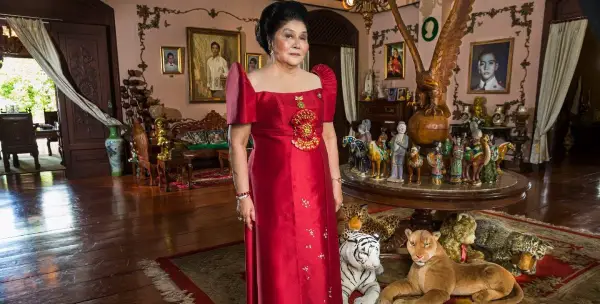
Husband Ferdinand Marcos governed the country as a dictator, enforcing martial law via brutal tactics, resulting in 70000 imprisoned, 34000 tortured and over 3000 documented deaths. Imelda, on the other hand, bathed in the excess granted by the lifestyle of being the First Lady, and confesses to the lens that she misses the clout of that status.
Her memories of her husband’s rule are marked by glamorous state visits and opportunities to splurge her lavish wealth on big construction projects infamously described as her “edifice complex”, like the San Juanico bridge and the Calauit Safari Park, for which 250 families were displaced to make space. Early on, footage shows her visiting a slum and pitifully handing out ₱1000 notes, solving a problem the only way she knows how – to throw money at it.
Except the amount given back to the people is infinitesimal to the amount she possesses, as she and her husband are widely believed to have amassed a multi-billion US dollar fortune through racketeering during their presidency, destroying the nation’s economy in the process. In addition to exploring that period in Filipino history through Imelda’s shonky perspective, the director records Imelda’s life here and now, chiefly by exploring the Vice Presidency campaign of her son Bongbong Marcos.
Here’s where The Kingmaker scarily transitions from conventional history doc to a critical history-in-the-making, capturing a dark time in Philippines democracy as Bongbong undermines his opponent Leni Robredo with the back-alley assistance of depraved President Duterte. The ill-gotten family wealth, that Bongbong claims he can’t account for, evidences its present-day existence in distressing ways that ought to warn the Philippines of its political future.
Greenfield peeks down that alley in a neat sleight of hand to her subject, whose sit-down interview is a hilarious and horrifying exhibition of zero self-awareness. “They didn’t find skeletons but they found beautiful shoes”, Imelda says about the crowds that poured into her closet during the People Power Revolution and found her 1220 pairs. Her plea for innocence involves sharing that Mao Zedong once told her she was bringing an end to the Cold War.
For this central interview, the mise-en-scene sizzles with absurd riches, unofficially putting the budget of the documentary in the multi-millions, extravagant enough to inspire the production designers of Succession on how to up the satirical ante. There are gold-framed Picassos, gold framed chairs, gold framed everything. Greenfield just has to set her camera down and ensure the lighting is good, whilst her subject has taken care of the rest for the recording.
As defined by her previous work, there’s a one-of-a-kind ability that Greenfield possesses of mixing tact with schadenfreude in the treatment of her subjects. In The Kingmaker, she strikes us with it again.
Lynn + Lucy (Fyzal Boulifa)
Maria Lattila: Lynn + Lucy, the first feature length film from British short film director Fyzal Boulifa, is remarkably unremarkable. It’s so British you can practically smell the freshly brewed tea and although it features a storyline that would easily fit into BBC or ITV soap, it never becomes a TV movie. Instead, this is a fascinating exploration of the culture around violence and scandal within a small community.

The film follows the titular Lynn and Lucy, best friends since their school days. Lynn, who had her baby at 16, is happy Lucy is now a mother too, although Lucy looks uncomfortable around her small child and the tension between Lucy and her partner is obvious. A terrible tragedy sends the women’s friendship into a tailspin and brings out nasty elements out of both of them, and everyone around them.
Like most films, Lynn + Lucy is all the better the less you know about it. There are some shocks, but most of the shocks come from the character arcs. No one is pure or innocent, but Lynn + Lucy isn’t interested in scandals themselves, but what they bring out in us. All the little nasty things about ourselves we hate; our need to please, desperation to belong and find companionship in the wrong places. Roxanne Scrimshaw and Nichola Burley as Lynn and Lucy are pure dynamite together. They have easy chemistry between each other and their friendship feels real, but never underlined.
Boulifa never resorts to explaining the narrative or characters’ motives, but trusts his audiences to read the film as they like. Lynn + Lucy is an interesting and fascinating piece of work and Boulifa is a director to watch out for, as he shows immense promise and talent here, even if the film doesn’t feel quite as satisfying as it should.
The Perfect Candidate (Haifaa al-Mansour)
Alistair Ryder: After a couple of Western films (Mary Shelley and Nappily Ever After) that received mixed to negative reviews, director Haifaa al-Mansour has returned to Saudi Arabia to try and recapture the magic of her wonderful debut film, Wadjda. That was the first film ever made in the country, with al-Mansour often having to hide in adjacent buildings to direct scenes, in case she captured unwanted attention from authorities in a deeply conservative, misogynistic nation. And, unsurprisingly, The Perfect Candidate similarly draws its dramatic tensions from the backwards nature of this society – as well as any culture that is skeptical of allowing women to enter politics, or have an equal shot at success.
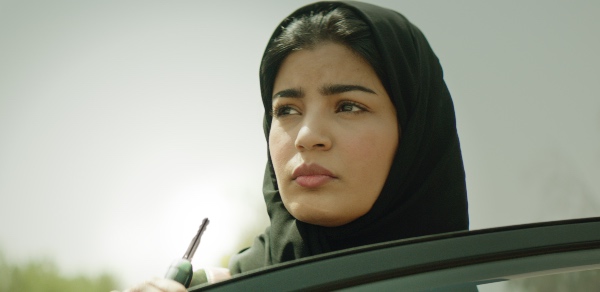
Maryam (Mila Al Zahrani) is a passionate doctor who is looking to move to the next stage of her career, even if she routinely has to deal with male patients who refuse to be helped by a woman. On her way to a conference in Dubai, she is told that her papers that allow her to leave the country are faulty, so she rushes to a friend to help – only he misunderstands the situation, and instead gives her the paperwork to run for election on the local municipal council. Understanding that this would help improve the infrastructure that makes it difficult for many to drive to the hospital, she decides to run, using a ten point guide on how to run a western political campaign to help her DIY drive for office.
There is a lot of charm to The Perfect Candidate, but it can’t help but feel somewhat quaint. Strip away the cultural context (the widespread misogyny in Saudi Arabia), and you’ve instead got a low key female empowerment drama of a variety that rarely gets made any more. The film doesn’t really delve into deeper political issues beyond those immediately in front of Maryam; we never focus on her opponents in the race, and we never explore any of the deeper issues beyond the poor infrastructure and demeaning attitude towards women. al-Mansour is one of the most controversial cultural figures in Saudi Arabia, but even as she spares no expense at documenting daily misogyny, it feels oddly like she’s pulling her punches when analysing a wider political system. As a charming study of a woman unexpectedly running for office, The Perfect Candidate is never anything less than enjoyable – but as a political drama, it falls flat.
Recorder: The Marion Stokes Project (Matt Wolf)
Faisal Al-Jadir: To some, the time-consuming endeavour which Marion Stokes undertook for more than thirty years might be seen as a symptom of misanthropic behaviour laced with severe obsession. What director Matt Wolf highlights in his poignant documentary Recorder: The Marion Stokes Project is the selflessness in her actions, in order to preserve the history of the United States. It was costly, in more ways than one.
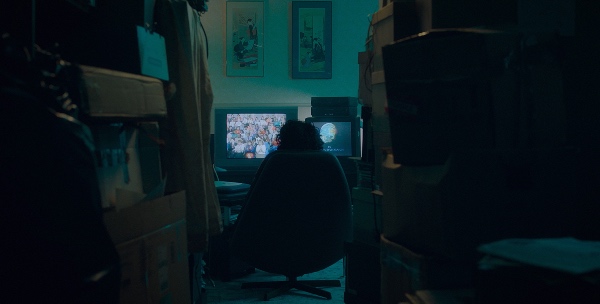
Early in her life, Stokes (born Marion Butler), who came from a poor background, became an activist and a librarian, and got to host a politically-charged panel show with her (future) second husband, John Stokes. Embracing communism in the 1950s, she developed a fear that her country would become the Nazi state they fought against nearly two decades ago, and would try (but fail) to escape to Cuba with her first husband and son Michael.
When she married John Stokes, she was afforded with a lot of time to focus on what was important to her, the news coverage. Her “hoarding” is what would come to define her. It was her essence and reason for living. Since she could not abandon America, she put it upon herself to chronicle its times.
With multiple video recorders taping numerous television channels simultaneously, there was always attention paid to the news. Her fortune would allow her to buy multiple properties and stock in Apple Inc., and surrounded herself with countless books and videotapes.
Wolf examines the various socio-political issues that swept the United States, through domestic struggles and foreign policy, and carefully shows us the consequences and effects of Marion’s dedication. Her family, including her son Michael, would feel alienated and estranged, because she seemed to care more about her country than her own family. This is implied even though her children have said that she is a person who cared deeply about those who were closer to her (and other people for that matter).
The interviews paint a picture of a very passionate woman, and it’s hard not to be affected by Michael when he remembers her so fondly, especially at the time of her death. Even more heartbreaking, is Michael trying to ensure that none of her tapes would be destroyed when she was gone, because that would be like destroying her memory.
While unintentional, there are some significant parallels with the story of Citizen Kane in so much as they both focus on people who let personal relationships sour as they try to control certain aspects of their lives with as little interference as they can get. What Wolf effectively points is that Marion saw that there was something bigger than her and everyone else. Her love for education and knowledge taught her that history should always be preserved so that future generations can always learn and progress. In that sense, her desire to never let go of the past has made her more adamant to pave way for the future that she herself could not foresee.
Not only is this an important documentary, but it is a prophetic one. It asks us to remember that the world may very well go on without us, and we need to help those that are yet to arrive. That is the legacy of Marion Stokes.
Wasp Network (Olivier Assayas)
Alistair Ryder: If the new Olivier Assayas film feels like a minor disappointment, then it’s testament to his strength as a director that the flaw of his weakest films are that he prioritises pure entertainment value over the richer dissections of our relationship with art and technology that characterises his best work. Wasp Network often feels like an extensive miniseries condensed into a two hour narrative, that can’t help but feel episodic by design – after all, the decade spanning tale of the five central Cuban intelligence officers of the Wasp Network has more than enough twists and turns to sustain an entire season of television. When told within two hours, it can often become exhausting, not least due to a structure where the separate (but inherently interlinked) narratives unfold concurrently. But with all this being said, this is the first Assayas film since Carlos that stands any chance of finding a wider audience outside of the arthouse.
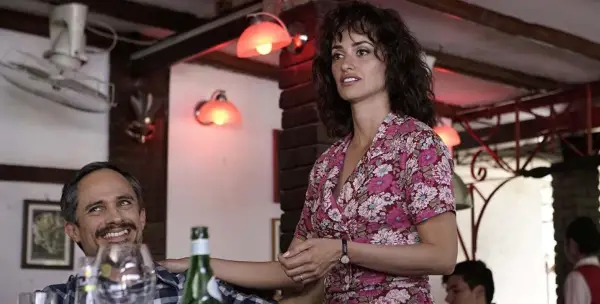
René Gonzalez (Edgar Ramirez) is a pilot in Cuba, who one day unexpectedly leaves his home country behind to fly to the US and renounce his home country under Castro’s rule. Leaving behind a wife (Penelope Cruz) and young daughter who assume he’s a traitor, it soon becomes apparent that he’s been hired to infiltrate an Anti-Castro organisation. Soon, he’s joined by another officer (Wagner Moura) who swims ashore to Guantanamo Bay in a staged escape from the country, and begins to meet with other agents working undercover in Florida, to try and stop any action that could overthrow Castro.
The film’s pleasures are as simple as the plot is convoluted. Assayas, a former film critic for Cahiers du Cinema, understands that the simple pleasure of watching movies is seeing beautiful people onscreen, and in casting a plethora of glamorous actors, can give some classic Hollywood-style charm to a narrative that has been messily constructed. There are some glimpses of Assayas’ textbook cultural critique; Wagner Moura’s first action upon arriving on US military soil is requesting a McDonald’s, waxing lyrical about the quality of American fast food – a more heavy handed way to explore the Americanisation (or lack thereof) of foreign cultures, but a distinctly Assayas way all the same.
But mostly, Wasp Network is a by the numbers thriller. It has some thrills, and proves that Assayas’ weakest films are better than the best films of most directors. But I just couldn’t shake the feeling that this material would be more rewarding if given the miniseries treatment.
More London Film Festival reviews are on their way, stay tuned to Film Inquiry!
Does content like this matter to you?
Become a Member and support film journalism. Unlock access to all of Film Inquiry`s great articles. Join a community of like-minded readers who are passionate about cinema - get access to our private members Network, give back to independent filmmakers, and more.
Alistair is a 25 year old writer based in Cambridge. He has been writing about film since the start of 2014, and in addition to Film Inquiry, regularly contributes to Gay Essential and The Digital Fix, with additional bylines in Film Stories, the BFI and Vague Visages. Because of his work for Film Inquiry, he is a recognised member of GALECA, the Gay & Lesbian Entertainment Critics' Association.













